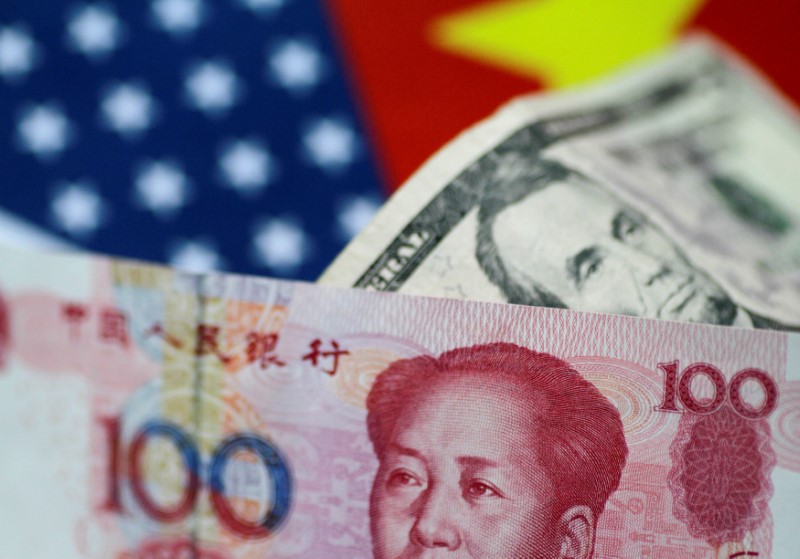Chinese Yuan Breaches 7 Per Dollar as Recession Fears Hit Asia FX
2022.09.16 01:14
 Most Asian currencies fell on Friday, with China’s yuan slipping past an important psychological level as concerns over rising interest rates and a potential recession dented appetite for regional assets.
Most Asian currencies fell on Friday, with China’s yuan slipping past an important psychological level as concerns over rising interest rates and a potential recession dented appetite for regional assets.
The slipped 0.2%, crossing the 7 level against the dollar for the first time in over two years, as investors continued to fret over slowing growth in the world’s second-largest economy.
Data on Friday showed Chinese marked their worst monthly drop in nearly seven years, falling 1.3% in August. China’s debt-saddled property market accounts for a bulk of its economic growth, and has come under extreme pressure from a cash crunch this year.
The weak data offset other readings that showed bigger-than-expected growth in Chinese and in August.
A series of COVID-related lockdowns ground Chinese economic activity to a halt this year, pressuring the yuan. This spurred several stimulus measures by the government to shore up growth, which in turn further dented the yuan.
But several recent strong midpoint fixes for the yuan by the People’s Bank of China suggest that the government is not prepared to let the currency depreciate further.
Most other Asian currencies fell on Friday, pressured by growing fears of a global economic recession following warnings by both the World Bank and the International Monetary Fund.
Expectations of a large interest by the U.S. Federal Reserve next week also weighed on regional currency markets, as in the country showed few signs of slowing. The remained pinned near 20-year highs.
The rose 0.1% after the government reiterated its commitment to curbing further losses in the currency.
But the yen was headed for its fifth consecutive week of losses, hovering near 24-year lows on a widening gulf between local and international interest rates. Japan’s increasing cost of energy imports also weighed on the unit.
Most other Asian currencies were also nursing weekly losses against the dollar, as the prospect of higher U.S. interest rates gave little respite to the space.








